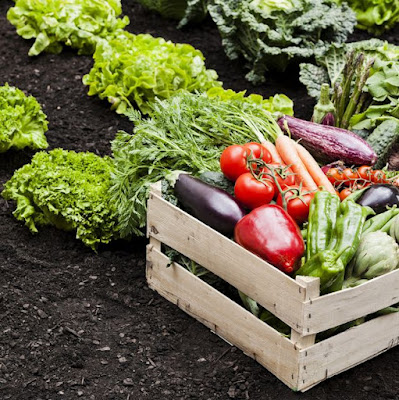Composting 101: Your Own Gardening Gold Dust
In an era where environmental consciousness is paramount, individuals and households are increasingly seeking eco-friendly ways to reduce their carbon footprint and make a positive impact on the planet. One such endeavour is composting, a simple yet powerful practice that allows you to transform kitchen waste into a valuable resource for your garden. This guide will take you on a journey to discover the art of composting, providing you with the knowledge and tools to turn your kitchen scraps into nutrient-rich compost, fostering a more sustainable and environmentally responsible lifestyle. Let's delve into the fascinating world of composting and unearth the potential it holds for both you and the planet. In this guide, we will explore the intricacies of composting, elucidating why it is often referred to as transforming food waste into the "gold dust of gardens".
Getting Started with Composting:
1. Selecting a Composting Method
The first step in your composting journey is choosing the most suitable method. Options abound, from traditional backyard composting to vermicomposting (employing earthworms) or aerobic composting. The choice hinges on your available space, commitment level, and specific requirements.
2. Ingredients for Composting
Successful composting necessitates a balanced blend of "browns" and "greens." Browns consist of carbon-rich materials like dried leaves, straw, and cardboard, while greens comprise nitrogen-rich materials such as fruit and vegetable scraps, grass clippings, and coffee grounds. Maintaining the correct ratio is paramount to ensure efficient decomposition.
3. Building Your Compost Pile
Constructing a compost pile is akin to orchestrating a symphony of decomposition. Layering the pile with a careful mix of browns and greens, maintaining optimal moisture levels, and regularly turning the pile promotes aeration. Adequate aeration enables beneficial microbes to thrive, accelerating the decomposition process and ensuring the creation of high-quality compost.
The Rewards and Benefits of Composting
The nutrient rich garden soil you will have available to you once you start composting has to be one of the best benefits. Compost bestows your plants with a consistent supply of essential nutrients, including nitrogen, phosphorus, and potassium. This results in lush, resilient plants that exhibit increased resistance to pests and diseases, fostering a thriving and picturesque garden.
It can also help reduce your dependency of chemicals since with nutrient-rich compost at your disposal, you'll significantly diminish your reliance on synthetic fertilizers and pesticides. This dual benefit not only conserves your financial resources but also minimizes the environmental impact associated with these chemicals. Your garden thrives naturally and sustains its balance.
Water conservation is also an added benefit to you and the environment that may not have first appeared obvious. Compost not only improves soil structure but also enhances its water-holding capacity. This translates to less frequent watering, particularly critical in regions with water scarcity or during arid seasons. You contribute to water conservation while nurturing a flourishing garden. Embracing composting can dramatically diminishes the volume of waste generated in your household. This commitment to waste reduction translates into less pollution, a reduced carbon footprint, and a clear path towards sustainable living. It's a practical way to address our growing waste problem while benefiting your garden and the planet.
Composting serves as a powerful antidote to the burgeoning problem of overflowing landfills. When organic matter, such as kitchen scraps, finds its way into landfills, it undergoes anaerobic decomposition, emitting harmful greenhouse gases, predominantly methane. By embracing composting, you actively participate in the reduction of these emissions and alleviate the strain on landfills, simultaneously reducing your carbon footprint. Simultaneously composting also helps you to enrich the soil you have in your garden. Compost is aptly called "black gold" due to its astonishing ability to enhance soil quality. It acts as a nutritional powerhouse, infusing the soil with vital nutrients, improving its structure, and enhancing its capacity to retain moisture. This enriched soil provides an ideal environment for plant growth, thereby reducing the necessity for chemical fertilizers and aiding in the prevention of soil erosion.
It can also promote biodiversity since compost acts as a catalyst for the flourishing of beneficial microorganisms within the soil, nurturing a thriving subterranean ecosystem. A biologically active soil, teeming with microbes and earthworms, is fundamental to sustainable agriculture and gardening. These microscopic allies facilitate the decomposition of organic matter, making nutrients readily available to plants. Simultaneously, they assist in pest and disease control, creating a natural and harmonious balance within your garden.
To conclude composting transcends mere horticultural practice; it represents an environmentally responsible lifestyle choice with far-reaching implications. By diverting food scraps and yard waste from landfills, enriching your soil, and fostering biodiversity, you actively participate in a sustainable cycle that transforms food waste into the "gold dust" of gardens. So, grab your compost bin, start collecting those kitchen scraps, and join the burgeoning community of compost enthusiasts who are effecting positive change, one compost pile at a time. Happy composting!









Comments
Post a Comment